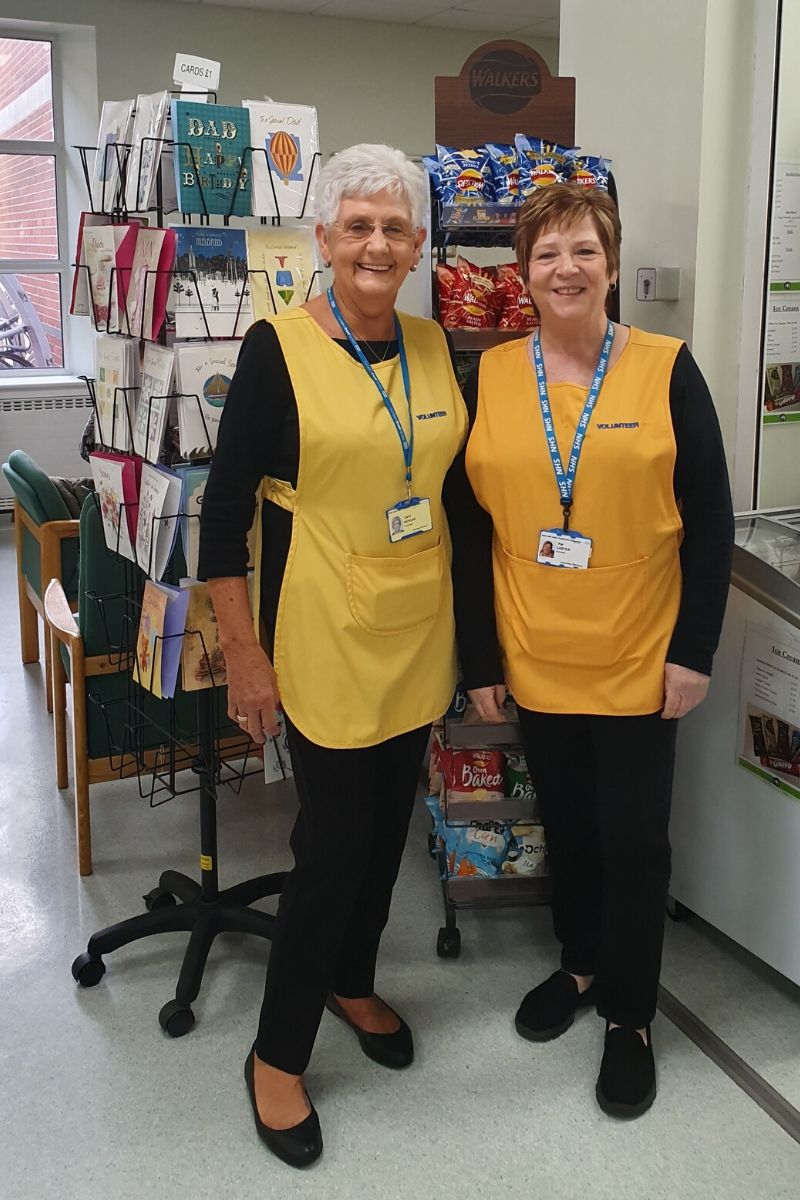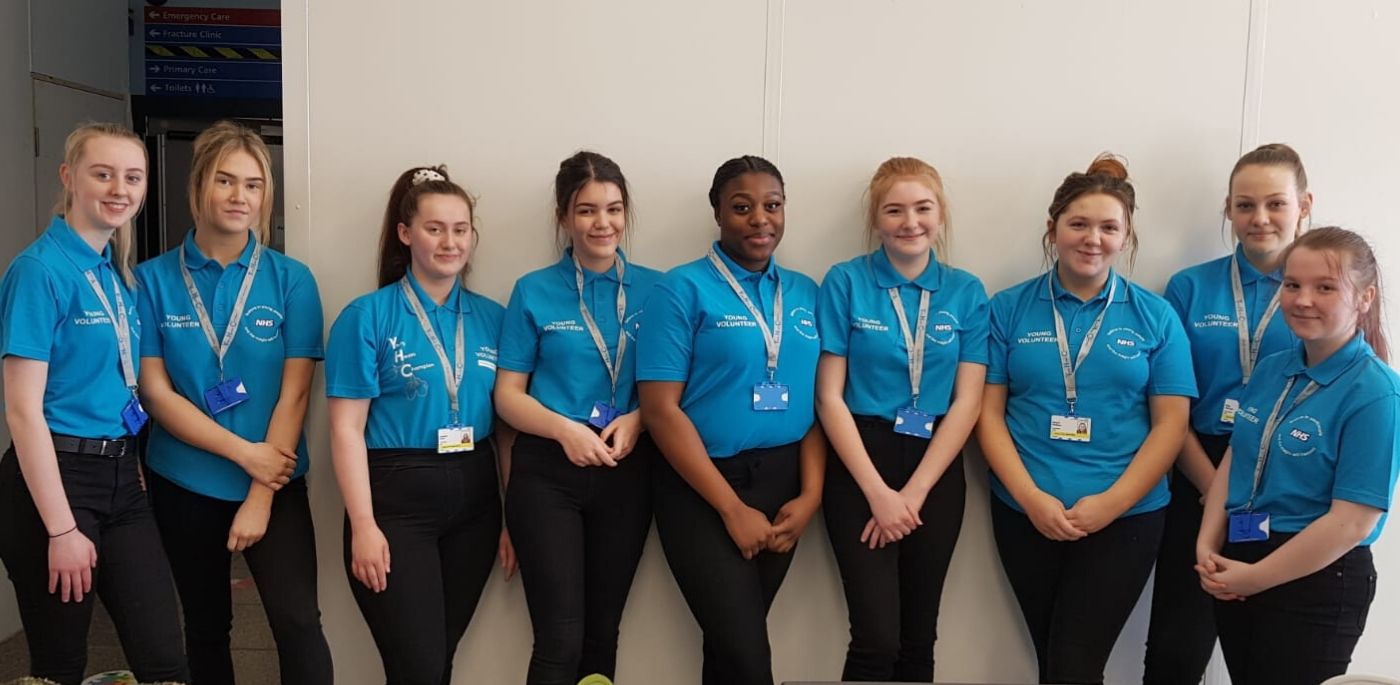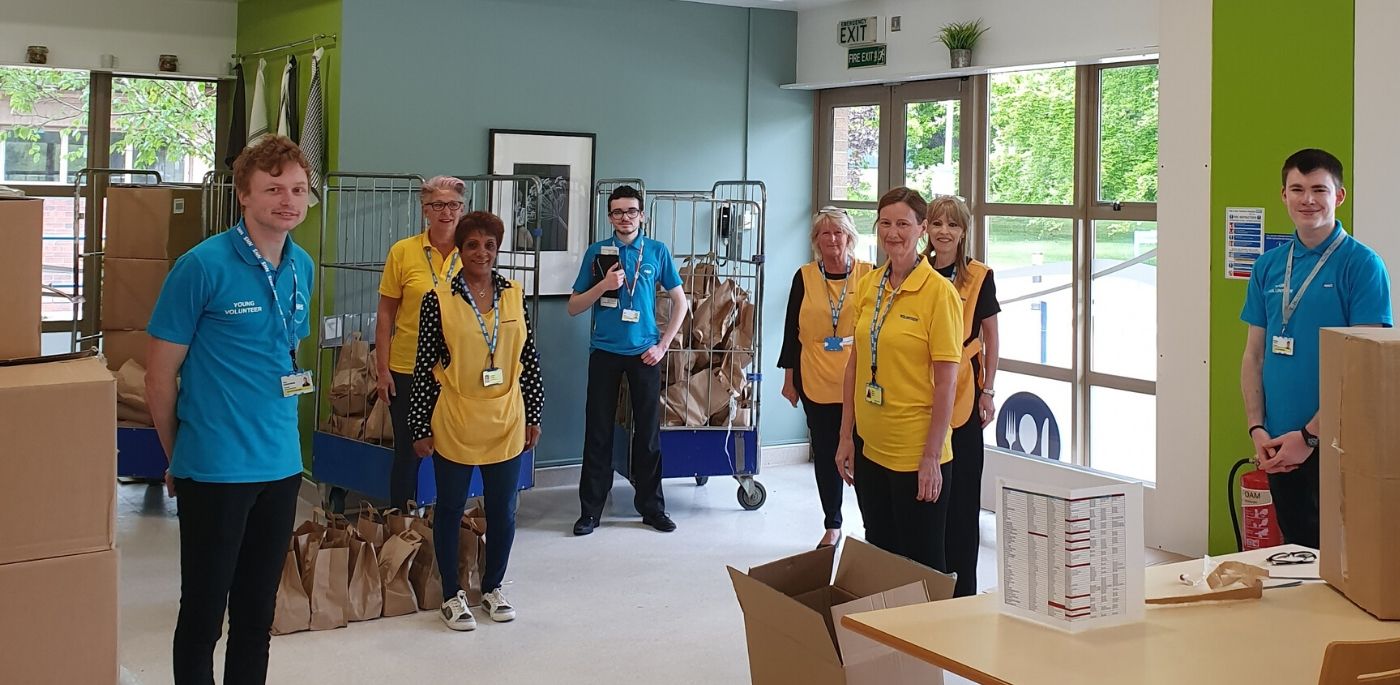National Volunteers Week is being celebrated a little differently at Hull Hospitals this year
It’s national Volunteers Week, and under normal circumstances, Hull University Teaching Hospitals NHS Trust would be thanking its 475-strong army of volunteers this week with the usual cream tea celebration.

Carol and Pat volunteer in Oncology (photo taken pre-COVID)
But with coronavirus still very much doing the rounds, the situation is anything but normal, and this has massively affected how the voluntary service has been running across Hull Royal Infirmary and Castle Hill Hospital.
Rachael Hardcastle-Pearce, volunteering lead for the trust’s patient experience team explains:
“We have some of the most amazing staff at our hospitals, but we are also reliant on the support of some fantastic volunteers too. We are lucky enough to have 475 people who regularly give their time to us in many different ways, and we simply couldn’t do without them.
“As the coronavirus outbreak began to unfold in March, it became clear that it would have a huge impact on the volunteers service.
“A large proportion of our volunteers, for example, are retired people who use their spare time to help others. As shielding rules were introduced to protect older and more vulnerable people, this meant a large proportion of those volunteers who would normally be available to support us could no longer be called upon because they had to stay at home.
“At the same time, rules around social distancing meant that many of the roles our volunteers carry out, such as ‘Meet and Greet’ and the ward trolley service, would no longer be practical anyway for the safety of patients, staff and the volunteers themselves.

Hugo’s work is on hold
“We know this has had a huge effect on our volunteers – many donate their time as much for their own physical and mental wellbeing as much as those they help. We have volunteers who were used to coming in almost every day who have been left feeling lost or like they have little or no sense of purpose anymore, but ultimately we have to do what’s necessary to keep them safe.
“It wasn’t just a blow to our older volunteers either, even the four-legged variety were affected, with therapy dogs such as Hugo no longer able to visit the patients on wards 8 and 9 and the discharge lounge at HRI with his owner, Yvonne; something everyone was upset about!”
As the coronavirus pandemic escalated, the amount of goodwill being shown toward hospital staff by businesses, community groups and supporters also grew, and a new way for volunteers to support staff during the crisis quickly emerged.
“Donations for hospital staff began to pour in, from hand sanitizer and Easter eggs to clothing and toiletries,” Rachael continues.

Some of the trust’s Young Health Champions (photo taken pre-COVID)
“The generosity was literally overwhelming at times; we could have pallets or delivery vans full of goods arriving day after day, and ensuring all of the donations could be stored safely and then distributed among staff at both hospitals became a logistical challenge. It was a nice problem to have, really!
“This is where our group of young health champions really got stuck in, helping out with everything from separating goods out for different teams and wards to delivering items around the hospital sites. We had a team of about 20 young volunteers working on donations every day at one point, helping to ensure those ‘thank you’ gifts made their way to the frontline staff who, in many cases, were putting their own health at risk to care for others.
“We also had some volunteers who, once told they could no longer safely perform their normal duties, switched to helping out in different roles behind the scenes; this gave our clinical staff some time back to concentrate more on direct patient care. It’s been refreshing for all of us I think to have a bit of a change, albeit not under the circumstances we would have wanted!
“What was also really great to see, when times were getting tough, was just how far our volunteers will go to support us. One young man, Tom Eckford-Sealy, wants to be an oncology nurse and has been volunteering on ward 31 at the Queen’s Centre. Tom regularly gets the train from Bridlington to Hull, then bikes from Hull to Castle Hill in Cottingham to volunteer, then makes the return journey home a few hours later; just amazing.

Volunteers have been a huge help in distributing COVID-19 donations
“We know we have a great bunch of volunteers, but the lengths people were going to, and continue to go to, to support our staff and our patients is so heart-warming.”
Twenty-year-old Adam is volunteering within the trust’s patient experience team he says:
“Joining the Young Health Champions was one of the best decisions I’ve ever made. I have learned excellent communication skills as a result, and I am able to effectively work in a team. I hope to gain an apprenticeship in the NHS in the future. I am forever grateful.”
Speaking about national Volunteers Week, 1st – 7th June 2020, Rachael adds:
“Our volunteers don’t expect anything back in return, but we try and show our appreciation a few times a year with a Christmas party and our Volunteers Week cream tea celebration which should be taking place this week. It’s one of the events the group looks forward to most, and a lovely way for us to acknowledge the contribution our volunteers make not just to the lives of our patients, but also to our staff and even each other.
“It’ such a shame that we haven’t been able to celebrate in the usual way, but I don’t think things have gone the way many of us would have expected this year.
“I’d like to say a huge thank you to all of our volunteers, whether they’ve been at home shielding in recent weeks or continuing to help out at our hospitals, and we’ll just have to make our end of year celebration bigger and better than ever to compensate!”
If you would like to know more about volunteering opportunities at Hull University Teaching Hospitals NHS Trust, call the Patient Experience Team on (01482) 623089 or visit www.hey.nhs.uk/staff/volunteering/

